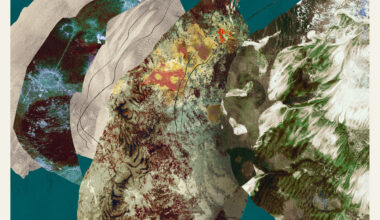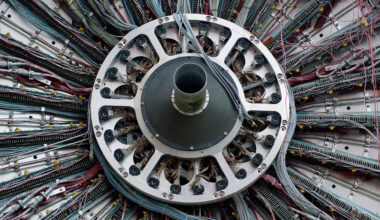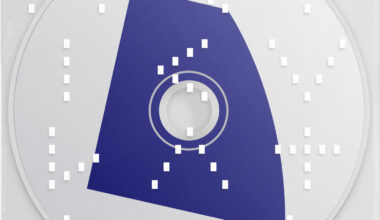Do it right and don’t break the rules – Model 500’s comeback album shows a master at work

We are in the era of the comeback. The past couple of years has seen Nile Rogers dust off his white jacket, Aphex Twin resume his job licking windows, and Giorgio Moroder announce through trembling moustache that he’s breaking his three-decade album silence. Even The Libertines are… Oh wait, no-one cares about The Libertines.
Juan Atkins releasing his first Model 500 album since 1999 not only puts him on a well-trodden path, it shoves him onto a high-speed motorway. How does he fare? Dare we watch? One thing we can be certain about is ‘Digital Solutions’ is more of a solo effort than most of his previous Model 500 records. His live collaborator, “Mad” Mike Banks from Underground Resistance, had a hand in the production, but it was Atkins who announced the completion of the album last July. Add in the fact that it appears on his own Metroplex label and you’ll understand why we can consider this as an auteur work.
When the Detroit pioneer first funnelled Chicago house through the exhaust pipes of the motor city, he produced beautiful mechanical electro closer in tone to Kraftwerk than Mr Fingers. This is what I want to hear with a Model 500 record. Listen to ‘Control’, released as a single in 2012. Listen to its rolling bass and scrunchy micro-squeaks. Listen to the precision of the beats and how the economy of phrasing is designed to evoke a reaction in the shortest blast possible.
‘Control’ is included on ‘Digital Solutions’, but Atkins saves it until the very end. Instead, he chooses to open with the riffing, squealing synths of ‘Hi NRG’, all twiddling funk based around a three-note hook. The 4/4 beats run more smoothly on ‘Storm’, this time in the form of simmering deep house, but they’re not typical. ‘Electric Night’ is much closer to the album’s heart, a soft electro mood-setter deadpanning the virtues of “Do it right / Don’t break the rules”, perhaps as an introspective reflection on 2010’s excellent ‘OFI’. The title track is Kraftwerkian – and I mean that in a good way – and is another highlight. The zap-snare reminds me of the scene’s earliest influences. History is etched into this album.
Alas, so is more recent history, specifically Daft Punk’s ‘Random Access Memories’, which I thought sounded like a bunch of geezers dossing about in a studio with too many influences at their disposal. To be honest, there’s a touch of this here. ‘The Groove’ sits somewhere between a drowsy jam and a fluffy Alex Reese-style rhythm, but it’s spoiled by modded synths posing as guitar solos. ‘Encounter’ meanwhile becomes a Lone-style slow-stepper, but not before we’re subjected to a dubstep bassline that seems clumsily pasted in, like an audio Microsoft Paint. It’s a long way from the clipped mayhem of Model 500’s classic ‘No UFO’s’.
Amid the experimentation, ‘Digital Solutions’ is still a, erm, model of focus. ‘Standing In Tomorrow’ is a good example. Its welcome ‘Strings Of Life’ richness is battered with Nintendo bleep-foolery sounds, as if Atkins has taken apart the circuitry of rave. There’s a master at work here, of that there is no doubt. The cymbals he layers into the snares adds an energy that most other producers would have missed.
The overall impression is of an artist who knows his sound, has plenty of vitality, and feels no pressure to bow to dancefloor trends – which, these days, are so dominated by house music, techno might seem invisible. A little too often, Atkins raises the stakes by simply upping the resonance and flooding the results with delay, when his true groove comes from those tiny moments of programming genius. But plenty of genius there is, which is why I’d rather listen to a thousand Model 500s than a dozen nu-breaks copyists.
So Juan Atkins has joined the high-speed comeback autobahn. I’m thumbing a lift.





